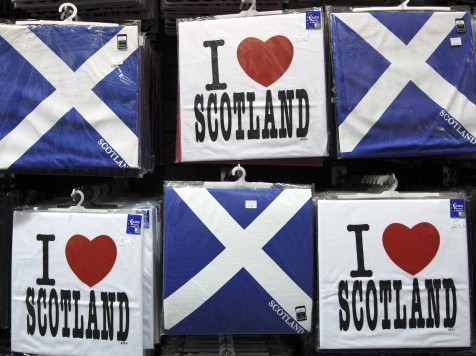The question over Scottish Independence looms large in the consciousness of every political operative from Westminster to Holyrood. Many are cognizant of the fact that the caprice of the Scottish Nationalist Party and its leader could well break up a union that has endured for over 300 years.
But on September 18th of this year, Scots will take to the polls to answer the referendum question: “Should Scotland be an independent country?”
While the answer might seem obvious to many on both sides of the debate, the question oversimplifies the matter quite extraordinarily. For instance, the UK’s nuclear naval base is in Scotland, and England’s northern-most neighbour may have to reapply for membership of organisations like the European Union and NATO if it decides to go solo.
But while the BetterTogether, pro-union (“No”) campaign has seemingly had the rub of the referendum to date, new polling may cause some concern to pro-UK types after it was implied that the pro-independence (“Yes”) campaigners have ever so slightly shifted public opinion.
While perhaps premature, and certainly subject to a various many caveats, not least future polling evidence to back up the claims, Scotland’s First Minister and leader of the Scottish Nationalist Party Alex Salmond this week proclaimed, “The momentum is now firmly with the Yes campaign, as underlined by the most recent poll.”
But the poll in question has simply revealed that the Yes campaign has narrowed the gap between themselves and the No side to eight points–still a significant margin to close. When the undecideds were removed from the Scotland on Sunday poll last week, just 46 percent said they would opt for Scottish independence, while 54 percent remained opposed, wishing to stay part of the United Kingdom.
This has led the No campaign to brand Salmond’s victorious tone as “hysterical”. The BetterTogether campaigners, the driving force behind the No camp, have pointed to months’ worth of evidence that shows a sustained lead for them, albeit with a few anomalous blips throughout.
At this point last year for instance, the Yes campaign registered 41 percent in its favour, while the No campaign had 59 percent of support. By May, the BetterTogether camp had opened up a whopping 42 point lead, but by November this was back down to just 10 points.
And it is this month’s closing of the gap to eight points that has Salmond and his nationalists champing at the bit. Salmond said this week that the newest results were due to “…the positive message we are taking to communities, but it is also a direct consequence of the No campaign’s scare stories unravelling one by one.”
Scottish philanthropist Tom Hunter, who is setting up a new website to help educate the public about their choice said, “It is my belief that the referendum is way closer to call than anyone thinks and for that reason I believe many Scots need far more data and evidence in order to make an informed choice.”
And he’s probably correct.
While rhetoric and hysteria has indeed plagued both sides of the debate in the run up to this historic vote, it is only through an affirmed knowledge in their positions that Scots will turn out on September 18th to have their say. Without a sizeable turnout, either side may attempt to question or even reject the mandate of the result.

COMMENTS
Please let us know if you're having issues with commenting.